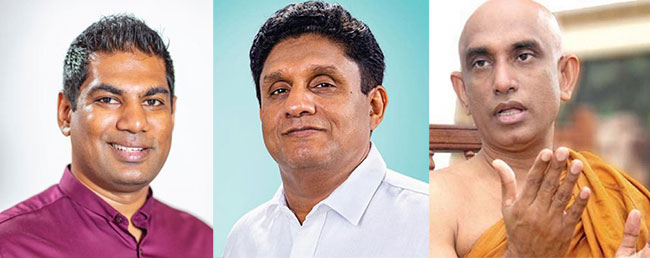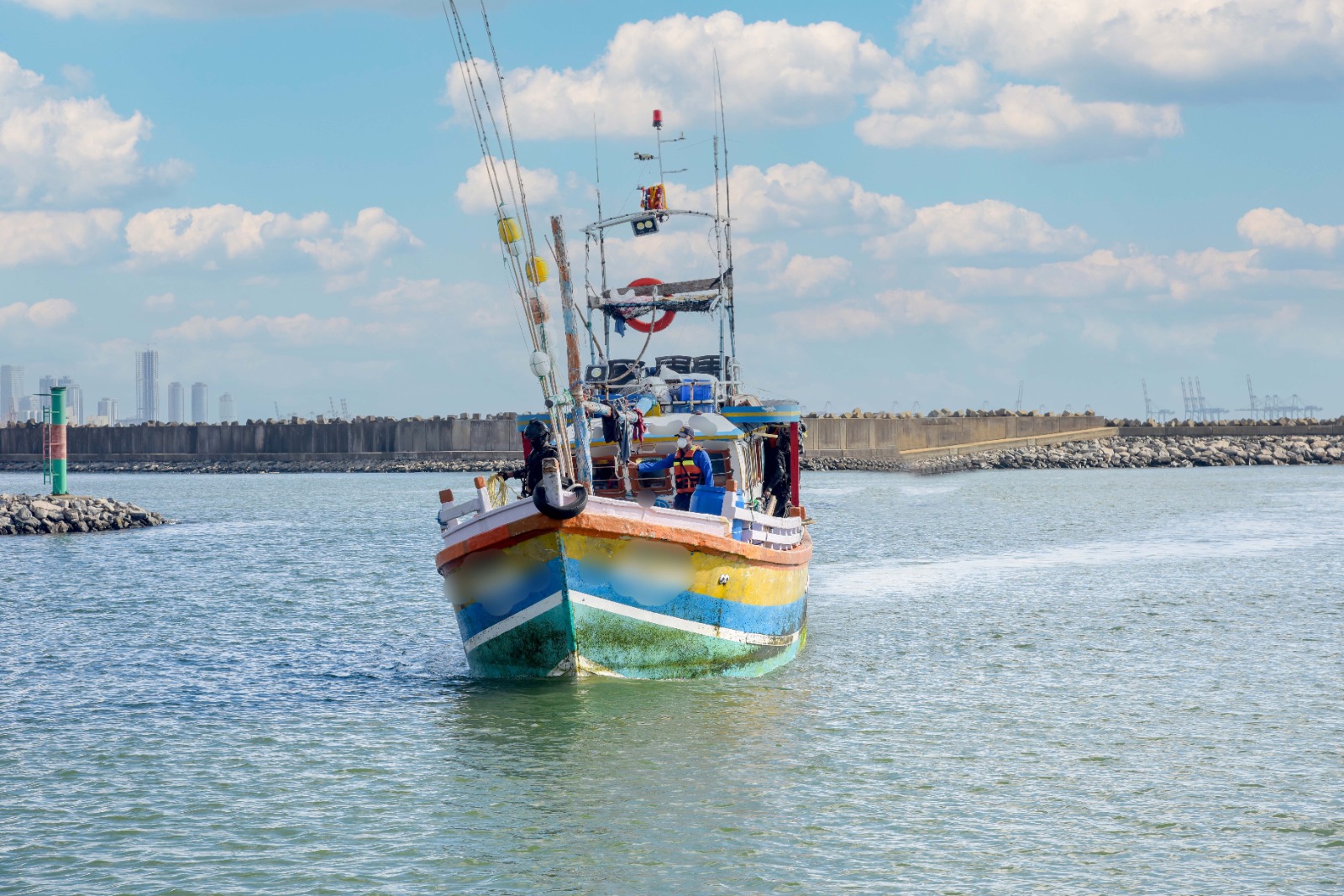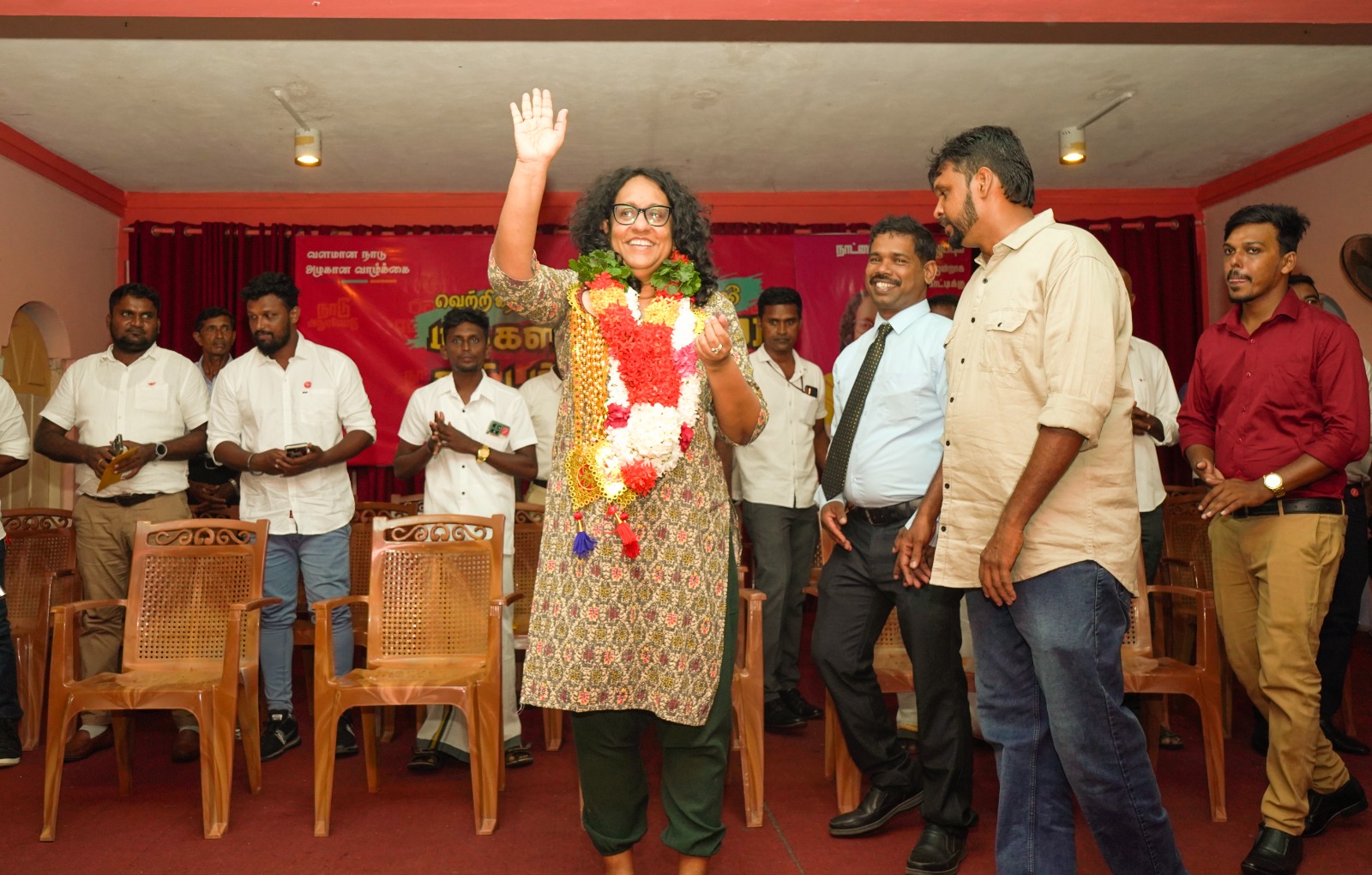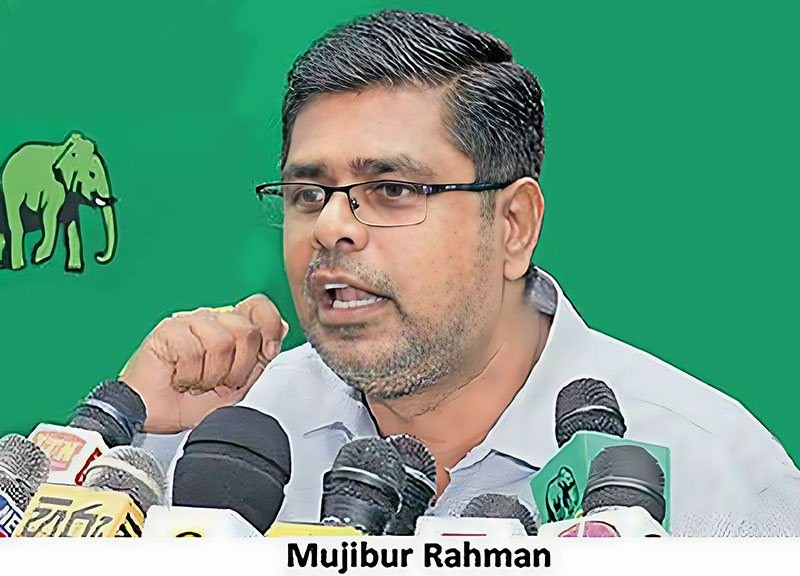News
Power Minister assures retention of competitive bidding process even after amending Electricity Act

By Saman Indrajith
Minister of Power and Energy, Kanchana Wijesekera on Wednesday told Parliament that the proposed amendments to the Sri Lanka Electricity Act would not lead to the abolition of the competitive bidding process for procurement of electricity.
The Minister said that they were only trying to make the implementation of sustainable energy products easier subject to approval by the Sustainable Energy Authority.
“There is also a misconception that the changes to the Act allows various companies including foreign ones to increase electricity prices according to their whims and fancies,” he said.
Minister Wijesekera said that even after the amendments, it was the Ceylon Electricity Board (CEB) that had the authority to determine the price of a unit of electricity.
“The CEB has a pricing formula to buy electricity. The formula is implemented by officials at CEB, the Ministry and Sustainable Energy Authority. The government and the Cabinet can’t decide the rate at which we would buy energy from the supplier”, he said.
In the past the CEB had done its best to thwart renewable energy projects, the minister said. The existing act helps the CEB to place obstacles for those willing to invest in renewables, he said.
There were discussions to change the act since August 2013, he said. However, certain powerful sections of the CEB had been opposed to changes that would reduce their powers.
“Only some engineers are opposed to the amendments. These are people who pushed for thermal power plants and thwarted attempts to boost renewables. The CEB last week asked me to increase electricity tariffs by 300 percent. The cost of electricity production is over 755 billion rupees a year. Our income is 250 billion rupees a year. There is a gap of 500 billion rupees. We pay tremendous amounts of money for diesel and to pay officials. The salaries of officers increase by 25 percent, once every three years.
“Do we need to pay for these unnecessary cost overruns by placing extra burden on the people? No, we must do this by reducing cost”, he said.
The Minister said that he would not present proposals to increase electricity tariffs, unless the CEB took steps to boost renewable energy that is low cost and clean.
Minister Wijesekera said that it was CEB officials who had entered into agreements with various power suppliers. The cost of a unit of electricity at Lakvijaya power station is 41.80 rupees, it is 80.50 rupees at Sojitz Kelanitissa Pvt Ltd, 61.56 rupees at Power Plant B, Sapugaskanda, 66.42 rupees at Power Plant A, Sapugaskanda, 62.14 rupees at the Barge, 65.52 at Uthuru Janani, 68.20 at west Coast, 98.40 rupees at Kelanitissa Combined Cycle, 137.60 at Kelanitissa G-T7, and182.40 at Kelanitissa Frame 5, the Minister said.
“The unit of electricity produced using renewable sources costs 16.80 rupees. Solar is bought at 22.50 rupees. A unit of electricity through hydro costs 4.35 rupees. Don’t take steps to thwart renewable energy. Right now, the energy permit is given a year after the tentative approval even if you own the land where the project will be implemented,” he said.
The Minister said that 800 million dollars was needed to purchase coal for the next year. The government spent 100 million dollars a month for diesel, needed to produce thermal power.
“We will produce more than what the country needs through these power projects. I think we must connect our electricity grid with India. We will be selling electricity to India soon,” he predicted.
Meanwhile, Opposition Leader, Sajith Premadasa said that they were supportive of renewable power and wanted to empower domestic energy producers. However, the real objective of the amendments to the Electricity Act was to allow certain foreign companies to monopolise the renewable energy sector, he asserted.
Those opposed to the amendments to the Act were not against boosting renewable energy production, Premadasa said. They were only opposed to the attempts made by the government to take away the competitiveness of the procurement process, he said.
“We will end up letting these foreign companies dominate the industry and pay them in dollars. And we will pay them double of what we pay domestic producers. By amending Section 43 of the act, we will only take away competitiveness. It will facilitate the monopolization of renewable energy,” he said.
Meanwhile, Ven. Aturaliye Rathana Thera said that even countries that had vast oil and coal reserves were shifting towards renewable energy sources. Sri Lanka had not attempted to exploit solar and wind power, which are abundant here, he said. The United Nations Development Programme allocates about 100 million US dollars a year to support such projects, but Sri Lanka had never tried to access those funds, the thera said.
The President in his election manifesto said that Sri Lanka needed to produce 70 percent of electricity through renewable energy sources, he said.
“Now, we get 65 percent of our power from diesel and coal. Nothing has been done since the President came to power. Has the CEB made long term generation plans based on the President’s vision? Did the government not see this crisis coming? A lot of people tried to warn the government. Instead of amending bits and pieces of the Act, the government must present a national policy on electricity, which it promised to do,” Rathana Thera said.
The Thera added that the Prime Minister had promised to establish a committee of experts and representatives of all parties when making important decisions. That had not been done with regard to changing the important Act, he said.
The Thera also said that he was supportive of renewable energy. However, there was reason to believe that the amendments to the Act were aimed at creating a monopoly over solar and wind power for the benefit of a foreign company.
“Not only will we keep on bleeding dollars, but we will also lose energy sovereignty. We need to amend the Act, but if you are trying to encourage unsolicited bidding under the guise of promoting renewable energy it will only have disastrous consequences. There is no problem with allowing unsolicited bids from investors who want to produce less than 25 megawatts through renewable energy”, he said, adding that there were many Sri Lankans abroad and they would send solar panels and batteries to their homes if the process was facilitated.
“The government will have to bear little cost. Let’s encourage rooftop solar panels, if most people set up these systems, we won’t have any problems. We don’t need to overthink this. We don’t need to try to create massive companies. We can produce a gigawatt of energy through rooftop solar with ease and if we can do this, we won’t have a crisis.”
Latest News
PNB detect large haul of methamphetamine and heroin in local fishing trawler intercepted by Navy

Acting on credible information, the Sri Lanka Navy launched a special operation on the high seas on 11 Apr 25, resulting in the apprehension of 06 suspects along with a local multi-day fishing trawler, believed to be involved in smuggling of narcotics.
Subsequently, the intercepted trawler was brought to the Dikkowita Harbour, where a thorough inspection was carried out with the assistance of the Police Narcotic Bureau (PNB) experts, leading to the detection of approximately 77kg and 484g of heroin and 42kg and 334g of methamphetamine (Ice).
The consignment, which had been meticulously hidden in the trawler, was handed over to the PNB for onward legal action on 12 Apr.
News
Government to initiate new projects to help rural communities to strengthen the national economy – Prime Minister

Prime Minister Dr. Harini Amarasuriya stated that the government is currently working to initiate new projects across every area of Sri Lanka and to bring the necessary investments to rural areas in order to improve the participation of the communities in strengthening the national economy.
The Prime Minister made these remarks while addressing a public gathering held on Saturday (12th) in Nanattan, Mannar.
Prime Minister further stated:
“Our country has reached a decisive point. The government of the National People’s Power (NPP) understands the expectations of the people. The general public came together despite the ethnic and religious barriers to exercise their voting right against corruption in politics that existed in this country. Consequently, Anura Kumara Dissanayake was able to become the President in 2024. A month later, we formed a Parliament that will initiate in changing the history. Today, we have a government made up of 159 members. There is now a strong group in Parliament standing against corruption and a government that represents all ethnicities, religions, and regions. For the first time in history, we have formed a government made by a single party that represents everyone. The people are the ones who made this victory possible and they are the true victors in this cause.
We are committed to protecting the trust the people have placed in us and to fulfill their expectations.
You are well aware of how weak the economy was when we came to power. Officially, we had been declared a bankrupt nation before the world. For many years, Sri Lanka had no economic growth and was in a debt-ridden economy. The tourism sector had collapsed. Due to the corruption in political authority, investors were unwilling to invest the country. Today, we have changed all that. We have managed to steer the economy towards growth leading to investments being restored while the confidence in Sri Lanka is increasing internationally.
We are working to start new projects in every area of Sri Lanka to bring the necessary investments to the rural sector, with the aim of improving the participation of rural communities in the national economy.
The first budget of the NPP government has passed. Even though the economy is not yet strong, we focused on two main priorities in the budget: one was to develop infrastructure necessary for economic growth, and the other was to provide relief to people burdened by economic hardships. That’s why we have increased and extended the period of Aswesuma benefits. Further, vouchers to buy schoolbooks was distributed at schools with less than 300 students.
Previous governments were a burden to the people. But today, we have a very small Cabinet of Ministers. The government is no longer a burden to the people. We have reduced expenses, minimized losses, and eliminated corruption.
Because the government is not a burden to the people, it was able to provide relief to the people. Through this budget, the basic salaries of the public service has been increased. They have been given the opportunity to work freely. Decisions are now made on statistical data and not based on political preferences. What we expect is an independent public service. We are in need of a people-centered government as well as a public service which should be an efficient, corruption-free and people-sensitive. We have already created the necessary environment for that.
In order to develop the rural economy, the government has allocated a large amount of funding through this year’s budget. But, to ensure that these allocations are used properly to serve the people, the local government institutions need to be cleaned up. If the leaders who represents the villages are corrupt, the funds allocated will become worthless. That is why the upcoming local government elections has become extremely significant and decisive.”
The event was attended by the Members of Parliament Jegadeeswaran and S .Thilakanadan, public representatives, and candidates of local government election representing the NPP.
[Prime Minister’s Media Division]
News
Batalanda: Why only now and what about the others, asks Mujibur

SJB Colombo District MP Mujibur Rahuman launched a fierce critique of the political hypocrisy surrounding the Batalanda Commission report during Thursday’s (10) parliamentary session.
Rahuman pointed to the violent actions of the JVP, which had devastating effects on politicians, police officers, and civilians, as detailed in the Commission’s final report.
He said that the violence had disrupted vital services and created a state of lawlessness, severely affecting the public.
The MP accused political opponents of exploiting the Batalanda issue for electoral advantage, noting that for 36 years, no proposals were made to investigate the assassination of JVP leader Rohana Wijeweera.
He criticized the JVP for forming “probationary” governments with Chandrika Kumaratunga and backing Ranil Wickremesinghe in the yahapalana effort, yet failing to address the Batalanda issue during their tenures.
Rahuman also questioned the current attacks on Wickremesinghe, highlighting that many of his critics had previously collaborated with him. He called attention to the JVP’s statements regarding Gotabaya Rajapaksa’s alleged involvement in a Matale mass grave and the distribution of pamphlets on the subject during the 2022 Galle Face protests.
The MP called for accountability, questioning why no proposals were put forward on these issues when the current government came into power. He also criticized the NPP for its leaders, who, despite being involved in suppressions during the 80s and 90s, now sought positions within the government. Rahuman accused them of hypocrisy, warning against dragging the Batalanda issue into the ongoing election.Rahuman said that the historical wrongs committed by JVP political leaders cannot be erased, regardless of attempts to downplay them.
-

 Business6 days ago
Business6 days agoColombo Coffee wins coveted management awards
-

 News1 day ago
News1 day agoSuspect injured in police shooting hospitalised
-

 Features2 days ago
Features2 days agoRobbers and Wreckers
-

 Features4 days ago
Features4 days agoSri Lanka’s Foreign Policy amid Geopolitical Transformations: 1990-2024 – Part III
-

 Midweek Review4 days ago
Midweek Review4 days agoInequality is killing the Middle Class
-

 Features6 days ago
Features6 days agoSri Lanka’s Foreign Policy amid Geopolitical Transformations: 1990-2024 – Part I
-

 Business1 day ago
Business1 day agoSanjiv Hulugalle appointed CEO and General Manager of Cinnamon Life at City of Dreams Sri Lanka
-

 Features5 days ago
Features5 days agoA brighter future …











